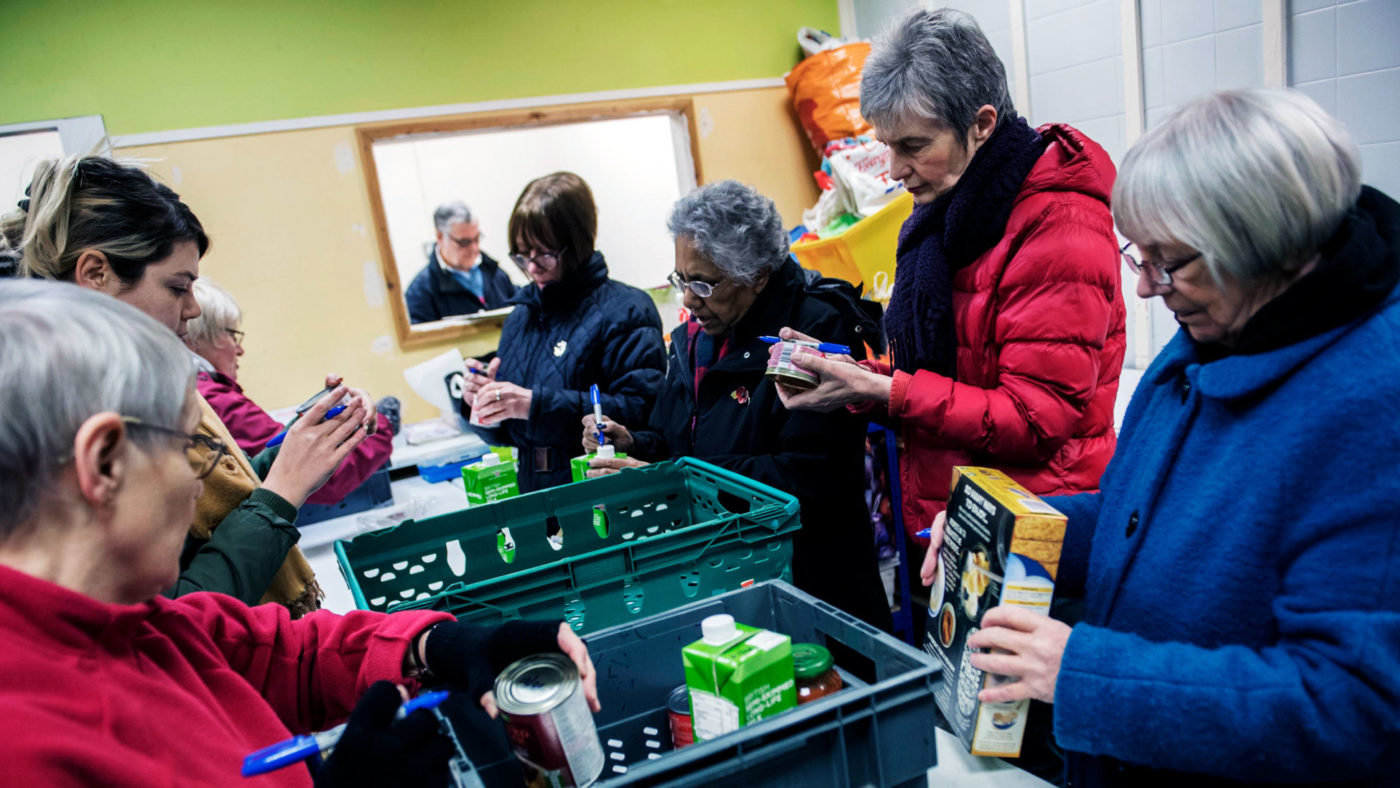According to Human Rights Watch, the British Government is breaching our human rights by failing to ensure that all have enough nutritious food to eat. Their proof of this contention is the growth of food banks. In other words, their proof of the existence of a remaining problem is the existence of a solution. That may leave some of you scratching your heads, but, you know, any stick with which to beat “austerity”.
Beyond this fairly major problem, the report suffers from a number of more minor technical problems.
We are told, for example, that food has become more expensive. This is an error driven by their mistake over the inflation rate. They have used the consumer price index as their measure. This is not a valid measure of food prices as they are much more volatile than general inflation. That may sound pedantic, but it matters. Food price inflation was negative from 2014 to 2017 and yet we don’t see HRW detailing how food poverty fell in this time period. There’s therefore something wrong with their measurement method.
We also are regaled with the usual story about austerity. You see, the Tories set out to gut the state of all that is good and holy for entirely ideological reasons. Thus the needless cuts and the balancing of the budget by stealing those now non-existent crusts from the mouths of poor babes.
And yet government spending is up in cash terms. Spending is higher as a percentage of GDP than it was during the Brown Terror. Sure, it’s lower than it was during the crash and just afterwards but then that’s just standard Keynesian economics: in a slump increase spending from 38 per cent of GDP to 45 per cent then manage it back down again to a little over 38 per cent as at present, once the crisis has passed. Tax as a percentage of GDP is higher than even Brown dared to make it, 34.2 per cent today as opposed to Brown’s peak of 33.6 per cent.
The prevailing narrative about austerity simply isn’t true. We now tax more and spend more than we did. This is not austere.
But there’s a much more important logical error being made when it comes to the HRW verdict on food banks. They’re using the existence of the solution to the problem as the proof of the problem being unsolved. As I have explained before, this makes no sense.
The report uses the existence of food banks themselves as evidence that the human right to food is being breached. Yet food banks are a method of gaining access to food. How can a system which enables access be used as proof of inaccessibility?
And sadly this really is their level of proof of the rise in food poverty. They note that food banks have become more numerous since 2004. This is entirely true. Quite what was causing the growth between that date and 2010 when the Conservative government introduced austerity they don’t care to explain. But that insistence on austerity – that doesn’t exist – causing greater food poverty is proven simply by there being those more food banks handing out more food. This argument has several rather large holes in it.
Before 2004 we really didn’t have food banks. It’s an American idea, and a very good idea, that was imported with the Trussell Trust as the largest operator/organiser. That the hungry can gain nourishment is a grand aim and why not have a system that achieves this? The spread of such charitable endeavour can best be explained by the rolling out of this new-to-us technology. Anyone who thought that we didn’t have a capricious, inadequate and inefficient welfare system before that date is being, at best, remarkably unobservant.
We found a way to solve the failures of the state and have been rolling it out. Great — and hardly evidence of a human rights breach.
Which brings us to the second, logical problem. HRW’s argument is the equivalent of claiming that getting housing benefit means you can no longer pay the rent. That is absurd. Housing benefit is the solution to rent, gaining food is the solution to not having food.
Here there is a misunderstanding about our right to food. It is not – even from the UN – a right for government-provided food. Nor even that the state must provide the income to afford that food. It is that the system must ensure the ability to gain that food. State benefits, a state food distribution system (though we might want to avoid the Soviet option), state vouchers for food, charitable provision, they all manage that access to food and so meet that specified right. And there really is no valid argument at all insisting that it must be the the state which performs the action. For where would that leave the majority of us? We go to work, earn, spend the money in the private sector and eat as well as any society or culture ever has done.
The injunction is that government must ensure our right to food is met. Which, by allowing and or promoting the existence of food banks and other private charity it does.
And that’s what’s really wrong with this Human Rights Watch report. They use the evidence that we are distributing food to those who need it through food banks as the very core of their argument that we’re not getting food to those who need it.
Food banks are the solution to this problem and isn’t it glorious that we have ever more of them?
CapX depends on the generosity of its readers. If you value what we do, please consider making a donation.


